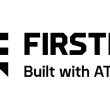Pot of gold or fool’s gold?
As public-safety agencies approach the first stages of 800 MHz rebanding, companies that sell and service mobile radio systems are looking to the future. When licensees finish negotiating with Sprint Nextel, secure the necessary funds and start work, the program could offer many opportunities for qualified dealers. But the role a dealer plays in rebanding will vary greatly depending on the system.
Though rebanding officially began eight months ago, the FCC’s three-year initiative to eliminate interference by moving hundreds of public-safety radio systems to new channels in the 800 MHz band really is just getting started. Plans call for the work to occur in four “waves,” by geographic region. Licensees in Wave 1 that operate in channels 1-120 should have reached agreements with Sprint Nextel on how much money the carrier will provide to support planning by Dec. 26. However, many agreements still have not been reached finalized.
The FCC addressed the situation in February by granting additional authority to the Transition Administrator (TA) overseeing the rebanding effort. The TA immediately revamped its policies regarding planning-funding agreements to speed the approval process (MRT, March, page 6).
“Once the planning contracts are signed, the mold will begin to be formed on the mechanics of completing this gargantuan national rebanding effort,” said Richard Wells, president of Dailey and Wells Communications, a M/A-COM sales and service company. Then the role of dealers will start to grow clear.
In addition to the licensee, Sprint Nextel and the TA, a rebanding project might include a consultant, the radio system manufacturer, prime contractor and a local radio dealer serving as a subcontractor, Wells said. “Who, what, where and when all the above players participate, and to what extent, is the question before many entities now requesting funding to plan the rebanding.”
Wells added that an individual dealer’s role would depend on “their experience, engineering resources and licensing, and relationships with the licensee.” He estimated that his company would help reconfigure 15 to 20 large systems.
Rebanding tasks include developing detailed plans for the move, programming radios that can be retuned, replacing radios that can’t, reprogramming or changing out base stations, repeaters and other infrastructure components, and testing the reconfigured system to make sure it’s operating correctly.
In many large rebanding projects, radio manufacturers most likely will take the lead, said Nick Tusa, a partner in New Orleans-based Tusa Consulting. Because public-safety agencies can’t afford communications disruptions, “the clients that we’ve been involved with have all been directing us not to deal with the dealers directly but to send rebanding issues documents — which are nothing more than specifications — to the manufacturer.” Once negotiations are complete, manufacturers will rely on authorized sales and service shops to supplement their own technicians, he said.
Robert Kropp, president of Horizon Resources, draws a line between mere radio dealers and sales and service shops that have extensive engineering expertise. His company, a public-safety radio engineering consultancy, is a division of Metropolitan Communications, a Motorola dealer and service provider. Horizon is providing engineering services for Chester County, Pa.’s rebanding effort and several others.
For a dealer that simply sells subscriber equipment, “where a local user has to change out their mobile radios and hand-held portable radios” in the course of rebanding, “that would be an opportunity to actually sell them the hardware.” But it takes experienced engineers and systems technicians to plan a complex 800 MHz reconfiguration and retune the infrastructure, he said.
Rebanding presents “a good opportunity for companies that have kept themselves up to speed with 800 MHz technology,” said Ken Williams, president of Williams Communications, but it also requires, “a large and expensive inventory of test equipment and certified technicians to accomplish a lot of the work that’s going to have to go into this.”
Williams expects his company will subcontract to manufacturers and private consulting firms that work on rebanding projects in the southeastern U.S. Tasks his shop might perform include performing site surveys and system inventories, determining what equipment needs to be reprogrammed and what has to be replaced, and working with the prime contractor and the TA to develop a project schedule.
Mobile radio dealers that want to get in on the rebanding action “should be talking to the manufacturers that they represent and find out if they can handle the workload, how they can assist,” said Andy Maxymillian, a consultant with Blue Wing Services, which provides project management services on the Chester County, Pa., project.
Wells agreed that now is the time to reach out to manufacturers. “The current planning stages will involve estimating costs and tasks that local dealers can certainly perform,” he said.
Once a qualified radio sales and service shop gets involved in a rebanding project, one key to success is to carefully study the relevant policies and guidelines. For example, Maxymillian said, the TA has released a handbook and other documents that explain how to submit a request for planning funds. Contractors that don’t adhere to those guidelines, “set themselves up for a lot of rework,” he said.
Kopp also stressed preparation. “Make sure you understand fully the point and order of the FCC requirements,” he said. “Make sure you know who all of the players are.” That includes players in the government agency that holds the radio license. Kopp suggested that contractors establish a management chart that describes the role of each participating local official: “Who the internal project manager is, who is going to be the person handling the finances, who is going to do the quality assurance,” he said.
Another important step is to inventory the licensee’s infrastructure, Kopp said. In a large system, with perhaps 25 to 50 remote sites that changed numerous times over the years, chances are that the agency doesn’t know all the components it owns. “There are costs associated with that sort of inventory error that could translate into the county losing money,” he said.
Along with documenting what the licensee owns, the contracting dealer should carefully document every task it performs for the client. “When a dealer goes into this rebanding effort, it’s good to simply assume that you’re going to have an audit,” Maxymillian said. “So make sure that you’re keeping good records and your documentation is thorough, and you can justify the work you plan to do and the work you’ve already done.”
REBANDING CHECKLIST
- Reach out to radio manufacturers now.
- Learn the relevant policies and guidelines.
- Take a complete inventory of the licensee’s infrastructure.
- Assume you will be audited: Document everything.
- Stand firm on quality versus cost issues.
Quality versus cost: Acknowledge the balance
Unfortunately, 800 MHz rebanding initiatives have gotten stuck as licensees wait for Sprint Nextel to give them funds to develop a full-blown reconfiguration plan. Before Sprint Nextel releases that money, it and the licensee must agree on some basic principles about the work. Apparently, talks have broken down in disagreements over what’s best for public-safety agencies versus what’s best for the bottom line.
According to Carl Robert Aron, executive vice president of RCC Consultants, the disconnects have occurred because the federal Transition Administrator (TA), which oversees the rebanding program, has taken an approach to rebanding that resembles, “that of an accountant.”
Instead of emphasizing how to solve technical issues and protect public safety, “I think the TA put a great overemphasis on making sure that no more than the minimum required amounts were spent at all stages of the proceedings,” Aron said. Although acknowledging that spending control is required by the FCC’s rebanding order, Aron believes the TA has wrongly placed that requirement above the goals of eliminating interference with minimal disruption.
The tension between doing things right and saving money poses a major challenge for radio dealers involved in rebanding, said Andy Maxymillian, a consultant with Blue Wing Services, who advised such dealers to, “acknowledge the balance and stand firm.”
“If the dealer believes [a certain approach] is the right way to do it, and it is a reasonable and prudent cost to do it [that] way, I would stand firm, and I would do my very best to communicate why it’s the way it should be done.”
— Merrill Douglas

















